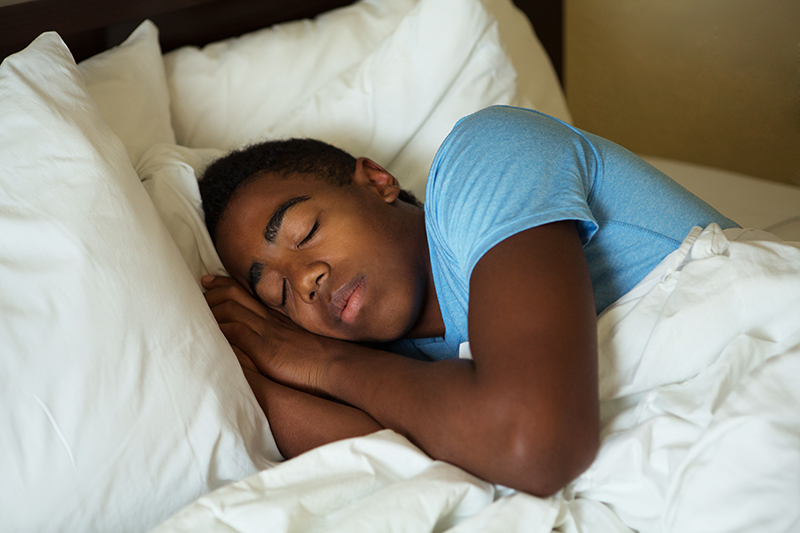
A good night’s sleep matters just as much for a teenager as it does for a younger child, but statistics show that nearly 70 percent of teens aren’t getting the sleep they need on a regular basis. Good sleep quality and quantity are critical for children of all ages as their bodies and brains are still developing. Not getting enough sleep on a regular basis has widespread effects on overall health and day-to-day functioning as well.

Sleep numbers for teens
The American Academy of Sleep Medicine published new recommendations in 2016 for the amount of sleep children and teens should get every 24 hours on a regular basis. For teens ages 13 to 18, they recommend eight to 10 hours, and some studies even suggest that nine hours per night is optimal for most. A recent nationwide survey, however, shows that only about 31 percent of high school students get eight or more hours of sleep on an average school night.
Teen trends affecting sleep
Part of the problem of inadequate sleep in teenagers is due to the natural condition that many develop during the teen years called delayed sleep phase syndrome. Teenagers tend to release a hormone in their brain called melatonin later in the day than children or adults. This hormone regulates our sleep-wake cycle, or circadian rhythm. Teenagers have a sleep cycle that makes them want to go to bed later at night and wake up later in the morning. In fact, many will naturally have difficulty falling asleep at a time that will allow them to get eight to 10 hours of sleep at night.
The sleep cycle problem is often further complicated by the use of screens at night, including while in bed. Light exposure from phones, tablets, computers and TV screens in the evenings further delays the sleep phase, resulting in even later sleep and wake up times. The early school start time common for most high school students also contributes to inadequate sleep. Many school districts are looking at later start times for this reason.
How to help
The hormonal changes and daily habits typically associated with the teen years can make getting a good night’s sleep challenging, and it’s vital for children’s emotional, physical and cognitive health that parents continue to actively support good sleep habits during this stage. Insufficient sleep in this age group is associated with higher odds of substance abuse, sexual activity and mental health problems and also with decreased physical activity, among other issues. Encouraging good sleep habits the same way you’d encourage proper bathing or tooth brushing helps. Read about good sleep hygiene habits for all ages.
If you have sleep-related concerns, talk with your child’s doctor. They can help with many problems and will be able to refer you to a pediatric sleep specialist if necessary.
By Dr. Justin Brockbank, pulmonary medicine and sleep expert
